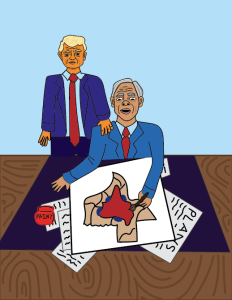Changes in the Incentives
October 13, 2016
With the addition of Finals Incentives last year many students found themselves enjoying extra benefits for both their well-maintained grades and regular attendance. That’s why incentives being limited to only two per semester for upperclassmen and one for lowerclassmen this year has caught many off guard and spurred some ill feeling among the students of Bowie.
It is likely that the Bowie staff has decided to change their policy after taking into account different opinions about the system. However, not everyone agrees with the changes that have been made with or without their consent.
Haroon Dossani , a Junior at Bowie was passionate about the new limitations.
“It’s illogical”, Dossani said. “People are being forced to use two classes while attending all of them”.
Dossani shares the same feeling of many other students in the school, who feel like things have gotten worse than before. For most students apart from current freshmen, incentives were seen at the end of last year as a glorious new advantage, so having the same thing this year toned down is disappointing.
“ I was happy with it because it caused less stress”, Dossani said in response to whether or not he enjoyed the previous system of incentives.
As has long been the case everywhere, teenagers might resist rules because of their nature, especially in the circumstances where some might view things as having gotten worse. However, Bowie students aren’t the only ones on campus with opinions about the incentives, and a lot of other people share unique viewpoints such as the staff.
Rachel Tennen, A French teacher in A hall held a contrasting view to that of Dossani.
“ I think [the incentives being limited] is a good idea”, Tennen said. “Because otherwise students might be missing out on the experience”.
The biggest decision about the incentives for students this year might be choosing just what classes they will use them on. Now that there are less options available for students it might take careful thinking on their part for what they want to use their incentives on.
“[I think students will use their incentives on] the most challenging and time consuming classes,” Tennen said.
Both students and staff are still taking time to adjust to the new system of incentives while unique viewpoints on the situation continue to circulate. As a school, Bowie has yet to see if this new implemented system will work to the best of its ability for students.








